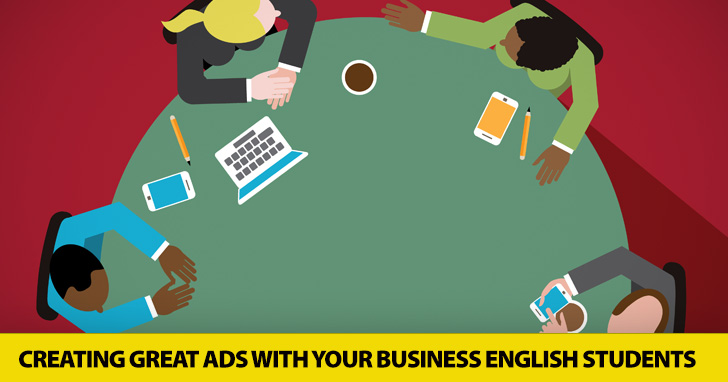In Your Face: 6 Simple Tips for Teaching Advertising [ESL Business Students]
![In Your Face: 6 Simple Tips for Teaching Advertising [ESL Business Students]](/uploads/posts/2016-04/1461104145_be4.jpg)

Learning some good methods for analyzing and creating fantastic advertising slogans is an important step, and deserves some planning and effort by the teacher. Not only is it useful in their professional lives, but slogans (and the products they describe) have a great cultural relevance, and speak volumes about the society which created them.
Here are some hints for approaching and practicing slogan-writing techniques:

Ask the students to brainstorm famous advertising slogans. You’ll almost certainly get Nike’s ‘Just Do It’, Adidas’ ‘Impossible is Nothing’, perhaps some from car companies, websites and travel companies. Then, scramble companies and their slogans, and see if the students can match them up. Here are some classics:
| Company | Slogan |
| Avis | We Try Harder |
| British Airways | The Way To Fly |
| Microsoft | Where Do You Want To Go Today? |
| Hallmark Cards | Reach Out And Touch Someone |
| WINS Radio | Give Us Twenty Minutes And We’ll Give You The World |
| Alka-Seltzer | I Can’t Believe I Ate The Whole Thing |
| Coors | The Silver Bullet |
| The New York Times | All The News That’s Fit To Print |
| Harley Davidson | American By Birth. Rebel By Choice. |
| Sprite | Obey Your Thirst |
A little analysis will be very instructive. Have your students tease out the salient features of a good slogan:
Most of the largest advertising budgets in the world are wielded by US companies. What about smaller nations and their philosophy of advertising? Set up an interview which could include questions with a broad range:
Organize your students into groups and have then brainstorm possible slogans for one (or more) of these companies. I tend to assign the companies to the groups, so we get some variety of responses. I also advise the students to begin by brainstorming words relating to the company, the product or experience it offers, and the likely target demographics.
The possibilities are as endless as your students’ creativity. These examples come from my own students in Boston; well done to them for some ingenious, collective thinking:
Senior Life: Sunset Over The Pyramids
This features the (admittedly slightly risky, but still relevant) double-entendre of ‘sunset’, which could refer both to the end of a day, seen amid the splendor of the Pyramids, and the end of life itself. I enjoyed it’s sass, and its imagery, equally.
Krypton Systems: Like the Internet. But Faster.
In an age when speed and immediacy are at a premium, this hits the mark. I enjoyed the hyperbole; after all, the Internet is already fast, and comparing your own speed to that of an efficient system highlights one of the company’s main promises. The same group tried, It’s The Internet, But Faster, which I also liked.
Powell Gordon Macintyre: Protection. Delivered.
Short, punchy and straight to the point. The same group wanted to try Keeping Crooks Of Jail Since 1967 but they had to agree that it didn’t send the right message!
Galactic Adventures: Beyond the Clouds
I loved this one. It’s emotive and imaginative, conjuring just the lofty, exotic, adventure-driven experience the company is trying to sell.
It’s well worth spending a class or two looking at good examples, and then having your students create some of their own.